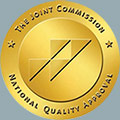In short, yes, an individual’s medical insurance should cover some portion of detox, but the type of detox covered can be incredibly specific and an insurance company can elect to offer coverage only for a small set of approved facilities.
There is an overabundance of health insurance companies available in America, and within each company a myriad of different (often tiered) healthcare coverage plans are offered. Each plan has extremely specific details surrounding the exact types of medical services that will be considered eligible, which indicate what services will be covered under the plan. Each plan will have a different monthly premium fee, and in many cases if a monthly premium payment is missed the plan is terminated. Some plans cover a portion of fees associating with obtaining services from an out-of-network professional, and some do not. Each plan has different co-payment fees for different things (i.e., filling a prescription, a specialist visit, surgery, a primary care visit, etc.). A general rule to avoid running into trouble with one’s insurance company is to call and specifically request confirmation of coverage from the insurance company for any service before it has occurred.
Affordable Care Act
In 2010, President Obama signed the ACA (Affordable Care Act) into federal law. The purpose for signing the ACA into law was threefold: to create affordable health insurance coverage, enabling more individuals to obtain healthcare; to expand the Medicaid program; and to support “innovative medical care delivery methods designed to lower the cost of health care generally.” Prior to the passing of this litigation, insurance companies were not obligated to cover substance abuse treatment. The ACA requires all health insurance plans to provide coverage for substance abuse treatment and related issues. Furthermore, the ACA stipulates that health insurance companies are obligated to provide similar coverage for the treatment of mental illness.
Although insurance companies are now required to offer some type of coverage or partial coverage to its members that need detox, the amount covered is variable. Some health insurance plans cover one hundred percent of the fees associated with detox, while others may collect co-payments for attending a detox program. There are large deductible insurance plans, that require an individual to pay out-of-pocket until they reach the threshold of having paid a certain lump sum prior to covering any portion of any medical service rendered, including attending a detox program. Even in situations where an individual has excellent and expansive medical insurance coverage, there are some detox facilities that do not accept insurance as a form of payment. Therefore, in addition to checking with one’s insurance about the coverage surrounding detox for substance abuse and/ or addiction, it is equally imperative for an individual to discuss acceptable payment options with the detox facility.
For Information and Support
Contemplating detox can be a very challenging time. Before any individual can begin to work on the underlying issues contributing to their substance abuse problem, they must be separated from the substances in their systems. If you are concerned for yourself or a loved one regarding substance abuse, and/ or addiction we recommend reaching out for help as soon as possible. The earlier you seek support, the sooner you and your loved ones can return to leading happy, healthy, and fulfilling lives. Sherwood Detox offers a stand-alone detox program. For additional information on detox, please do not hesitate to contact us at: 818-626-9959 or feel free to email us anytime. One of our trusted counselors is available to talk and discuss how we can best support you on your journey.









